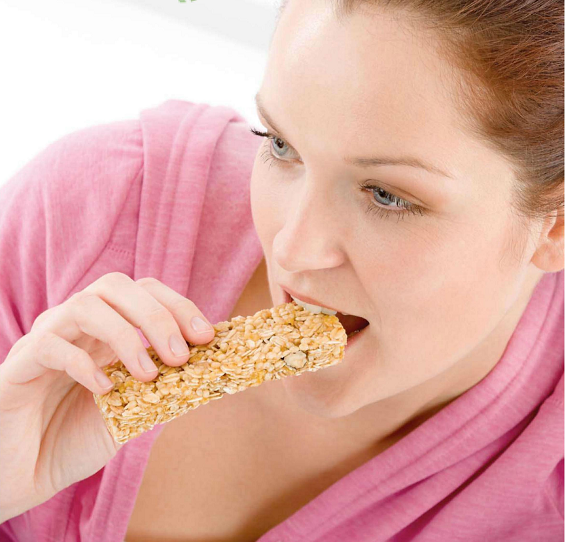Is your eating plan helping or harming your workout?
Eating the correct food at the correct time,
according to the workout you do, can really help you improve your performance, tone
and overall wellbeing. However, each person is unique and each expert has a
different approach to exercise and nutrition. The general consensus is that diet
affects your performance, and the food you choose to eat before, during and after
your training will affect your recovery and performance outcome.
Different types of training have different variables
when it comes to fuelling your body. The same can be said of your general
health.
If you are a strong, healthy person, you may
not need to watch what you put into your mouth as carefully as someone who has
high blood pressure, diabetes or any other such condition.
All the experts consulted agree that each workout
calls for a different nutritional approach. Personal trainer and owner of
Fitness Technologies, Julian Reichman-Israelsohn, says: "The more intense your
exercise routine, the higher the kilojoule burn and the faster your metabolism
becomes, so you should take in more kilojoules to fuel your body correctly for
the extra energy required for that type of training and performance."
Comrades Marathon winner Nick Bester adds that
the more rigorous the training routine, the more muscle breakdown occurs, which
means that more protein is needed for muscle recovery.
“Early morning workouts raise your
awareness, helping you make healthier eating choices throughout the day”
When is the best time to exercise?
This all depends on your goals. Personal trainer,
consultant and nutritionist Julian Naidoo suggests that if your goal is fat-burning,
an early-morning cardio session will be good. But if it is muscle-building and
strength-training, an afternoon training session will be better.
Reichman-Israelsohn agrees. "Between 3:00pm
and 4:00pm is the ideal time to do resistance-training, as your body is fully awake
and functioning properly. It has also been properly fuelled through the
day."
The human body functions on a circadian rhythm
or internal clock, and this cycle depends on your personal schedule. If you
struggle to fall asleep, the morning is your best time to train, as the additional
energy production of evening training can keep you awake.

Lifestyle and wellness expert Lisa Raleigh adds:
"Morning exercise is an ideal way to start the day feeling energized and raring
to go. Early-morning workouts raise your awareness, helping you make healthier eating
choices throughout the day." However, she also points out that those who train
in the late afternoon and early evening have the advantage of training when the
body reaches its maximum temperature. During this time, your lungs will process
oxygen more efficiently to improve your stamina, your muscles will become more
fluid and you will have increased agility.
But regardless of the time that you train, honoring
a regular routine will bring you the best results long-term, and being wide awake
during your workout will guarantee a more efficient session and more kilojoules
burnt in that time.
“Ensure that you have a meal at least
half an hour to an hour before you exercise, but make sure that it is low
fibre, low-GI and contains fluid”
Pre-Workout Eating
Eating before training will ensure that
your body is using energy, and not muscle, during your workout, so it is
important to eat the correct snack before you train, says Naidoo. He adds that
the more you preserve your muscles, the faster your metabolism becomes. When
you wake up in the morning, you start the day with low blood-sugar, because you
haven't eaten for about 10 hours.
"Training on an empty stomach in this state
means your workouts are fuelled by the glycogen stored in your muscles, as well
as your body's own lean muscle mass. The purpose of training should be to
increase lean muscle mass, which improves your metabolism, so morning training on
an empty stomach would be counteracting this process," reiterates Raleigh.
She explains that even though it's not a good
idea to be running on empty, you don't necessarily want a lot of food in your stomach
either. If you are going to work out first thing in the morning, Raleigh suggests
a piece of fruit, a small yoghurt or a vegetable juice as an ideal pre-workout snack.
However, she also recommends that the best time to work out is two to four hours
after eating, depending on the size of your meal.
If you are training for an endurance event,
Woolworths dietician Maryke van Zyl indicates that having a proper meal before
the session is essential. "Have a meal at least half an hour to an hour
before you exercise, but make sure that it is low-fibre, low-GI and contains
fluid," she says.
Bester also suggests eating before you attempt
a long, tough session, to ensure that you will have enough fuel to carry you through
the entire race and that you can keep up your high pulse rate.
Eating before training can be very technical
if you are training to compete, as opposed to simply keeping fit. However, running
coach and nutrition expert John Hamlett says: "It's important to eat for energy
and not always for maintaining your optimum muscle-to-fat ratio."
He explains that runners would need a
"light high-carb kick, while weight-training is a little different, as the
absorption rate is dependent on the movement and effort of that specific sport or
exercise. A good rule of thumb is to try to keep the GI index near 35; this
will aid in preventing a spike in your blood-sugar levels. As each person is
different, Van Zyl recommends that, if you are training to compete, you experiment
with your nutrition strategy before you embark on your event.